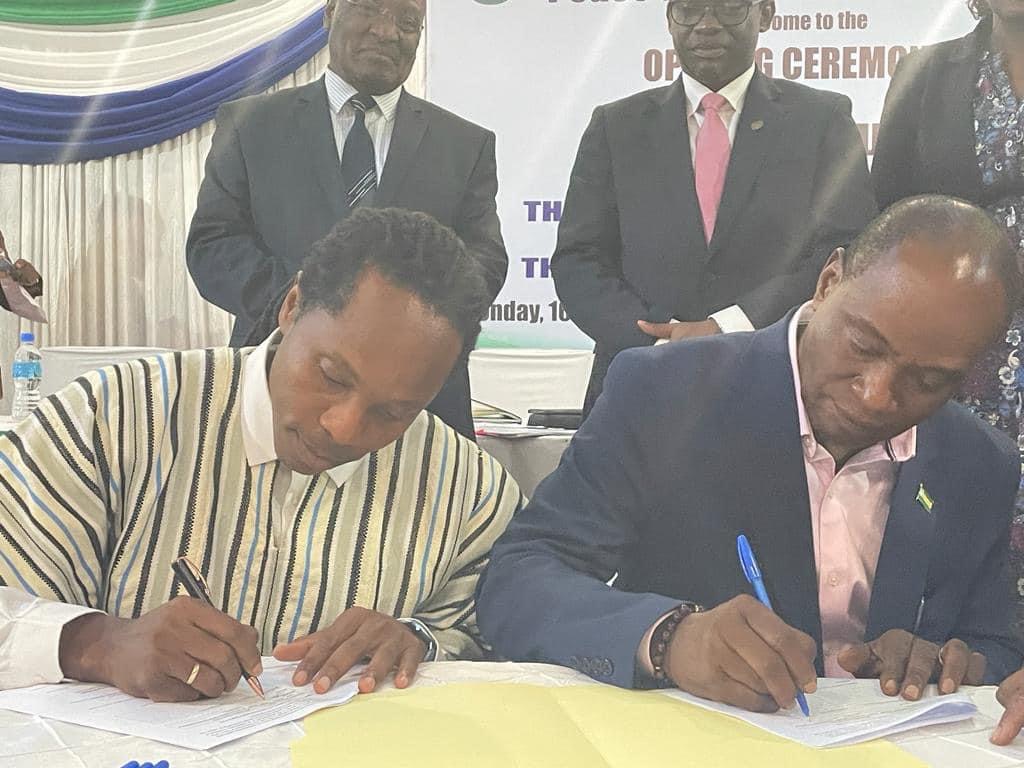What a time to be back! The mediated dialogue between the Government and the main opposition, the All Peoples Congress (APC), was the highlight of the week. Talk of the town, and rightly so. It is indeed a conversation that will linger on for a while. Maybe not for too long because no topic is too big to last too long in public discussions in this “compound” of ours. It takes one frivolous event to steer attention away from importantly boring political discussions like the dialogue. By the way, when is the next reality show starting on your favourite TV station?
As many Sierra Leoneans and members of the international community breathe a sigh of relief and congratulate the parties, we must attempt to unpack the dynamics of the negotiations, the parties’ behaviour and the outcome they produced. Firstly, we say peace is good! You would probably be lonely arguing otherwise. However, as always, we are interested in understanding where this sits within the grand scheme of things.
This was an opposition government dialogue, and you would sort of understand when commentators or even politicians say it was a “win for Sierra Leone ”, but was it really about people or power? The outcome clearly reflects the interest of the parties and their negotiators and the strength with which they went into the process. So many factors might have shaped this, but it is key. We’ll explain why, but let us bore you a bit.
Strategy is key in negotiations because it offers a roadmap for navigating a complex process. Negotiations are not about winning in the last round, as Igor Ryzof argues in his famous Kremlin School of Negotiations. They are only a process, and without a clear strategy that guides that process, a negotiating party will remain on the back foot in the end game. It is not for us to say who had a better strategy in this, but one thing is clear. The communique that the parties signed lends credence to Ryzof’s argument because what we have in the communique is the product of that process and it has been largely determined by the coherence of the parties’ negotiating strategies and whether they saw the opportunity as a means or an end.
Let us turn to strength or power. The strength with which a party comes to the table is a huge determining factor in the behaviour they adopt and the ensuing outcomes. Judging from the behaviour of the parties, it was obvious that the opposition’s strength was weaker, relative to the Government’s, and that could be seen in the fact that the President or Vice President did not engage directly with the process and instead appointed a lead negotiator in the person of the Chief Minister, whom, we should state is a ranking member of government. This is arguably insignificant depending on where you sit, but not having the leaders of the negotiating parties in the same room (at least for the signing) shows who is on the stronger side.
Many supporters of the opposition seem disappointed by the outcome. We don’t know exactly what, but expectations seem very high, and one could guess that the key to them was that the Opposition would come out of the dialogue with disaggregated results by polling station. The APC negotiators did not seem to get that and there is no clear commitment on it. The communique is utterly vague about an electoral systems review, which seems very similar to what the President proposed or announced at the State Opening of Parliament. To go back to Ryxzof’s point on negotiations being a process and not the last bout, you clearly see what victory looks like at the end of the day here, and the supporters of the opposition who are frustrated can see it. You can understand their frustration, considering that this has been the major point of contention in this impasse.
This was a very short process and it was only a matter of days to see the product of the mediated dialogue. That the dialogue ended with no clear deal on releasing the detailed, segregated results by polling station is a big win for the Government. Also, that they could get the opposition to end their boycott immediately is, by every measure, another massive win and an important step in the legitimisation of the polls and the Government. All of this comes at a small cost: closing court cases against people in the opposition (and many of them have cases hanging over their heads); securing the release of people in detention (even that is unclear considering the various stages and events at which people were arrested); and ensuring that elected officials from the opposition get salaries and entitlements that they have not earned and the taxpayers will pay for. This outcome makes the dialogue look like a dialogue literally, and as always, the people lost. This outcome is what you get from a political elite bargain. Na di reggae dis.
There is another side to it, though. One also has to understand that coming from a position that seemed weak, against an opponent that clearly had their act together and enjoyed a position of power (literally and also, within the context of the negotiations), concessions had to be made. Sacrifices had to be made, but the fundamental question is what do you sacrifice: the biggest stake on the table or the ribs? In the world of the APC, you would rather go for the ribs than walk away with nothing and in this case, someone walks away free from court cases, while others take their seats in government, enjoying their full entitlements, including monies they have not earned. William Zartman and Jeff Rubin articulated in 2002 that when you have power in a negotiation, you assert and when you come from a weak position, you try to make up for it by turning shortcomings into a set of desires. The opposition got what they desired.
Were opportunities missed? Yes! One would imagine that the dialogue would be a platform to address a wide range of issues that do not only affect the elite and leaders in the opposition, but the people–including their supporters. To give an example, issues like police conduct and heavy-handedness that often leads to civilian deaths must have been firmly on the agenda with a view to push reforms and accountability. The police must be made to be more responsive to the needs of the public and accountable to the people and not just to power. The parties are coming out of the negotiations without any position or agreement on accountability despite the number of people who have been killed or brutalised recently–Makeni, Tombo, Lunsar, Freetown, and other places. That would have been a win for the people.
Whatever you are up to this weekend, it might be worth bearing in mind that people never win in an elite bargain.


